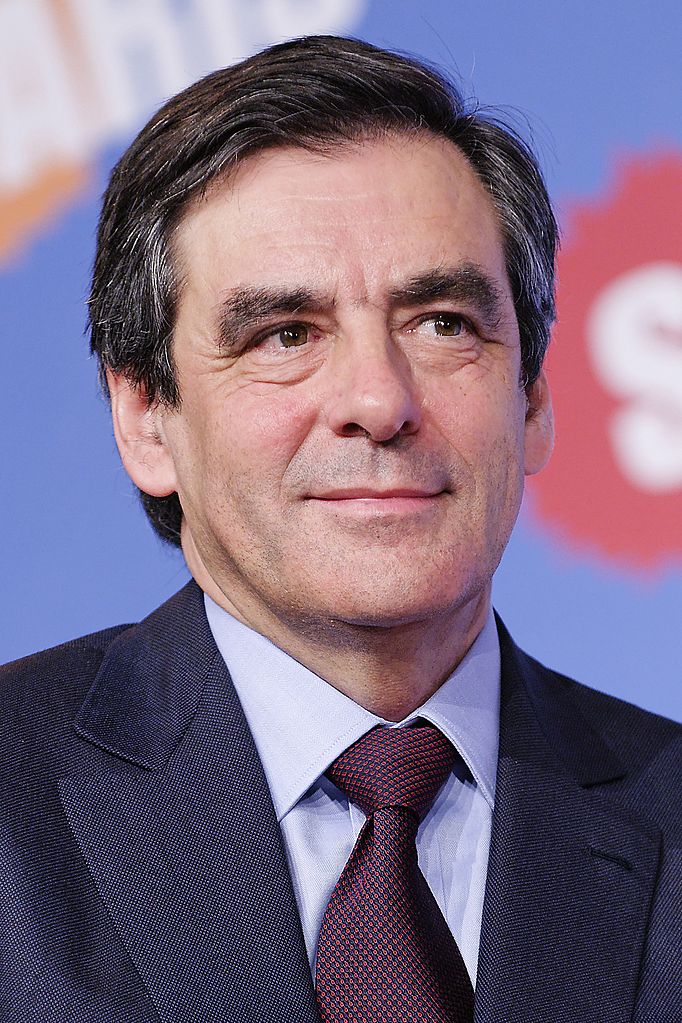One of the most important ethical questions is what the value of life is. Are all lives equal, or are some lives worth more?
This seems like an airy-fairy question, but it’s not. It under-girds how we dole out punishments for crime, how we spend money on healthcare and public services and when and how we go to war. It is at the heart of the NYPD turning their back on New York’s mayor and in their reaction to the killing of two police officers.
And it is at the heart of our societies reaction to the murders at the satirical magazine Charlie Hebdo.
If you haven’t seen any of the Charlie cartoons in question, take a moment to do so. Or see this cover, if you’re Christian.
What Charlie was doing was clearly political commentary. It was also clearly intended to be offensive.
As a result three young Muslims killed twelve people. And we are having a collective freakout over it.
I note that during the 90s hundreds of thousands of Iraqi children died, and we did not freak out this much.
More people die in car accidents, electrocution or by falling from ladders than die due to “terrorism” in Western nations. Certainly more people die of the flu. Police kill far far more Americans than are killed by terrorists. (Though French policemen are far less trigger happy.) The French led invasion of Libya killed many, and the deaths are ongoing, deaths which quite likely would not have occurred without that invasion. In Syria the insurrection against Assad led to far more deaths than would have occurred otherwise, and that insurrection was supported materially by many Western nations.
9/11 was a huge tragedy, but the western blockade of Iraq in the 90s had killed far, far more people without anyone in the West getting nearly as worked up over it.
Some lives are clearly worth more than others. Our lives, the lives of those we identify with are worth more than their lives, the lives of those we don’t identify with.
So one American life is worth, what, fifty Iraqi lives? A hundred. What’s the metric?
To the police, and most Americans, a police life is worth more than a civilian life. Certainly a police life is worth more than an African-American’s life. And I think it’s clear that to most whites a white life is worth more than a black one.
We are intensely tribal, and we care far more about the deaths of people “like us” than the deaths of people “not like us.”
So, in part, the deaths of the Charlie Hebdo cartoonists and other workers cause so much outrage because they were white and European.
We spend our time killing brown people and black people and Muslims in large numbers, using paramilitary weapons domestically, and military weapons and economic warfare internationally, killing far more of them than us, then act surprised when, deeply offended, they strike back. (Yes, yes, this was a symbolic target and they really should have killed French politicians or military, but it’s not like we are discriminate (don’t even pretend we are.)) Somehow our outrage is valid, but we don’t grant them the right to theirs, including their vengeance. We attacked Afghanistan and Iraq for 9/11, but bin Laden explicitly said that he attacked the US because of American killings of Muslims, including all those dead Iraqi children.
His vengeance is evil. (It is, actually.) Ours, not so much apparently.
So let us be clear “our lives are worth more than theirs”. A lot more.
If you die a “wrongful death”, and the time comes for monetary compensation, how much your relatives receive will be based on what your income was. The more you made made, the more your relatives have lost in monetary terms, and they will receive more.
People who earn more, are worth more to us, in hard monetary terms. The life of a minimum wage worker just isn’t as big a deal as the death of someone who makes a lot of money. This is based on our actions, not our words.
That doesn’t have anything to do with the Charlie dead, they earned virtually nothing. Apparently the French didn’t feel like paying for the sort of satire they engaged in. Nonetheless, the lives of those who make more money are worth more to us.
In the old days there used to be the idea of “woman and children first” — that their lives were worth more than male lives. That may have been honored more in the breach, as with the Titanic, but one can also find occasions where captains of ships did insist that women and children went on the lifeboats first.
We see children as innocent, and we calculate that they lose more years than adults, so we value their lives more highly. And, perhaps, it also has to do with a parental instinct which most of us have. As for women, the biological “realists” would claim that those who can create new humans are more valuable, but whatever the reason most societies hate the idea of them being killed in war or raped far more than they dislike the idea of either of those fates happening to men.
Many feminists would argue that there are many ways we show that we value women’s lives less than mens—we certainly pay them less and for most of history we gave them less rights.
But tribalism trumps the women and children exception. Half a million dead Iraqi children speak loud and clear on this.
Our children are precious and worth anything. Their children. Whatever.
Is the value of someone’s life based on what they do? Or what they were doing? We would certainly feel more outraged at the death of a search and rescue worker than a gangster. Large parts of our society value police lives over civilian lives, and certainly our legal system, which almost never tries police for killing civilians does.
The Charlie Hebdo victims were engaged in “free speech”. Satire. They were mocking those who values they disagreed with, and doing so in a way intended to offend them as much as possible. (Take a look at those cartoons and try and argue otherwise.)
We claim to value free speech greatly, and since the Charlie victims were engaged in mocking people who didn’t appreciate it, and since that’s “a fundamental value of Western society” we class their deaths and more tragic than those of Iraqi children who died due to lack of medicine they would have had if the West hadn’t been sanctioning and blockading their country.
One might, however, question our commitment to freedom of speech. Oh, the French themselves are pretty good on free speech these days, but Americans with their Free Speech zones and punitive whistleblower prosecutions; the British with their draconian libel law, Official Secrets Act and anti-terrorism legislation; and Australians with their obscene internet censorship laws (to highlight just a few) seem hardly to be icons of “free speech”.
So, are some lives worth more depending on what people are doing? To be sure. But, the French themselves aside, perhaps what the Charlie writers were doing that makes them martyrs wasn’t just “free speech” but the target of their free speech, some of whose members responded violently to the insults: Ilsam. And that isn’t “free speech”, it is “Us vs. Them.”
And, as wonderful as France is on free speech these days, one remembers the Evo Morales incident, when France denied the Bolivian President’s plane right of way because of suspicion that Edward Snowden might be on board, so that the plane was forced down in Austria in an attempt to apprehend the famous whistleblower.
Some free speech is more important than others. Cartoons mocking Islam and Christianity are far more important to protect than a man who has revealed wholesale spying on the citizens of
Western nations.
But perhaps it is more simple, Snowden was only going to be locked up in a maximum security American prison after a trial whose result we all know, in effective isolation, till that drove him insane. The Charlie victims were killed.
And that leads to the final category: are some deaths worse just because of how they happen? Is being beheaded worse than dying in a car accident? Is being shot by terrorists worse than being shot by police? Is death from starvation worse than—oh why bother.
Yes, some deaths are clearly worse than others. I’d rather be shot than tortured to death, or die of starvation. But really what we mean are “deaths out of their time” or perhaps “deaths by violence”. The Charlie victims weren’t “due” to die yet. But then, neither were those Iraqi children, or all the Irakis who died of being shot in a war based lies (no WMD, no ties to 9/11).
But many deaths are preventable: easily preventable, and we fail to do so. Effective public transportation in the US, reducing the use of cars, would prevent a lot of deaths. But Americans like cars, or something, and so those deaths are considered acceptable. More effective restrictions on guns meant for killing people (as opposed to hunting rifles, say) and on ammunition would save a lot of American lives, but many Americans value their guns highly and think the deaths are a worthwhile price to pay.
All of this has been about what lives we, demonstrably, value more than others. It hasn’t been about what lives we should value more.
Perhaps the answer is simple. All lives have equal value, and in the event we are forced to choose between lives in a situation which doesn’t involve self-defense, we should indeed choose the young over the old. Or maybe not even that, the old perhaps not being willing to volunteer.
I, myself, don’t know. But I do know this. As long as Western lives are valued at something approaching infinity to one versus Muslim lives, Muslims are going to continue to be radicalized. John Paul VI once said that those who value peace should work for justice. I believe that. The Charlie killers appear to have been radicalized by the Iraq war. No Iraq war, no radicalization, no Charlie victims.
But that’s a pragmatic argument. The human argument is simpler: those Iraqi children’s lives were worth as much as any white child’s life. Anyone who believes otherwise is a monster acting on tribalism. And one day your tribe will be the weak one, because all Empires fall. And when that day comes, members of your tribe will rail at those who kill your children and don’t care, because your skin is white and theirs isn’t, and they can and you can’t do anything about it.
The only clear justification for killing is self-defense. More on that, perhaps, in another article. But if you must kill, let me suggest some old-fashioned mores: kill military not civilians, kill adults not children; kill those who have actually harmed you (politicians who decided on wars which devastated your country), not those who haven’t.
If you want vengeance, shoot at the guilty and shoot at those who can shoot back.
If you enjoyed this article, and want me to write more, please DONATE or SUBSCRIBE.


